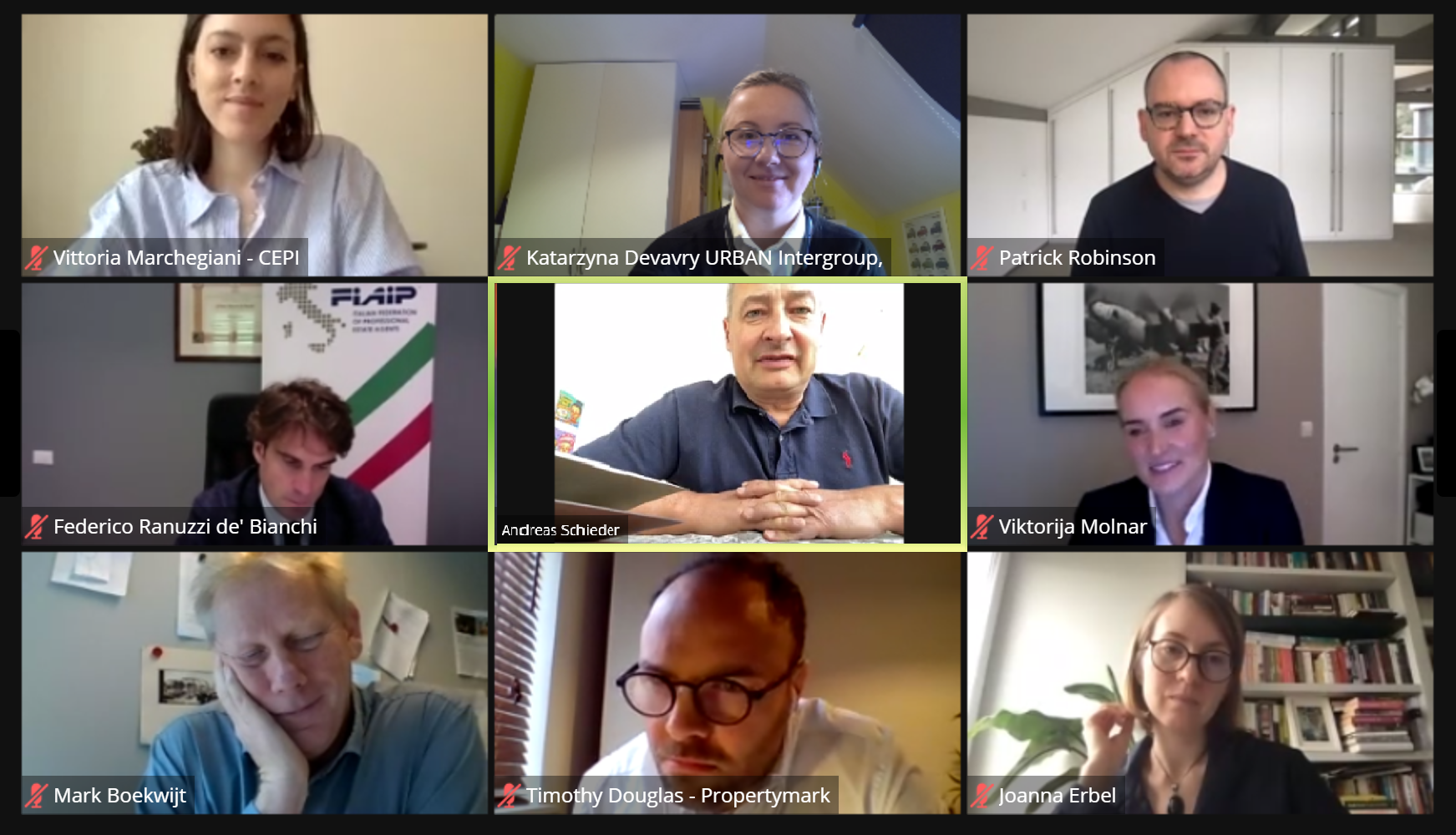Improving legislation on short-term rental platforms for a better cohabitation

Short-term rental platforms and their impact on the real estate sector and cities in Europe was the topic of the last online seminar co-organised by the URBAN Intergroup and the European Association of Real Estate Professions (CEPI), which is also one of the Intergroup’s official partners.
Jan Olbrycht, President of the URBAN Intergroup, opened the seminar by welcoming the discussion and clarified the importance of the phenomenon of short-term rental platforms and its impact on tourism, housing and the real estate sector in general, as well as on urban developments in European cities.
Elisabeth Rohr -de Wolf, CEPI Secretary-General, underlined that the European Association of Real Estate Professions (CEPI) was happy to co-organise this session on short-term rental platforms (STRs) together with the URBAN Intergroup as it brought together many of the key players involved in the field enabling all to discuss the different challenges and opportunities surrounding STRs. In her opening address, Elisabeth Rohr -de Wolf, underlined that CEPI does not intend to promote a pro/anti narrative in this field. She suggested the need for a better understanding of this relatively new ecosystem, highlighting the requirement to study its potential in the sharing economy, as well as ensuring that appropriate regulation remains in place for the benefit of all. The ultimate aim, she concluded, is not to discriminate against alternative business models but to ensure a level playing field for all involved parties.
During the first panel discussion, Federico Ranuzzi de’ Bianchi, CEPI Vice-President (FIAIP, Italy), recalled that the short-term rental system is not only proposed by big online platforms but by real estate agencies as well. This type of rentals, in fact, is not only destined to tourists but it is also relevant for mobile workers and students. Luis de Prado, CEPI Vice-President (CGCAFE, Spain), underlined the need for reflection on how real estate and property management agencies on one side, and online short-term rental platforms on the other, could beneficially co-exist on the market. He emphasised that platforms should encourage their customers to respect rules concerning the quality of life of inhabitants and that more control of customers’ inappropriate behaviours should be put in place in order to avoid potential conflicts in the buildings. He called for a better organisation of this section of the rental market in order to find the best ways of coexistence between different operators.
Mark Boekwijt, representing EUROCITIES and cities’ alliance on Short Term Holiday Rentals, recalled that the alliance of European Cities on Short Term Holiday Rentals (STHR) is a group of more than 20 cities and key tourist destinations, which ask for stronger regulations on the STHR market in order to counter its potentially harmful impact on the housing market. He underlined as well that cities are not against short-term rental but need to enable on the one hand high flows of tourists and to the other a constant and high demand for affordable housing for local inhabitants. Moreover, he underlined that it should be ensured that all short-term rental activities are legal and respectful of the regulations that are in place. In this context, the Digital Service Act was mentioned, which among other important things, will help to block illegal advertisements. He finally called for a responsible regulatory balance between short-term rental and liveable and affordable housing in cities.
Professor Pieter-Paul Verhaeghe from the Free University of Brussels (VUB), presented insightful first findings of his study about the impact of Airbnb providers in the Brussels Capital Region, yet to be published. He underlined that every responsible and balanced policy towards short-term rental platforms should not only distinguish between different Member States, regions and cities but also between different types of neighbourhoods. In case of Brussels, data shows that Airbnb listings are concentrated in and around the city centre and the EU institutions, and that similarly to other type of touristic accommodations, they are close to tourist attractions, hotels and restaurants. However, they are less frequent in neighbourhoods with many elderly, children and non-EU migrants. He also pointed out the heterogeneity in hosts: occasional and sharer hosts are more spread-out, while professionals and investors are strongly clustered in city centres and largely overlap with hotels’ locations.
In the second panel discussion, Amaryllis Verhoeven, Head of Unit Digital Transformation of Industry from the European Commission, reminded all about the Commission’s Inception Impact Assessments on Short-term rental initiatives. This initiative aims to develop responsible, fair and trusted growth in short-term rentals, as part of a well-balanced tourist ecosystem. It also aims to ensure a level playing field for all accommodation service providers and to respond to the many requests from interested parties for EU-wide action in this area. This will involve offering balanced solutions for cities, peer and professional short-term rental providers and platforms, while benefiting in particular small and medium-sized firms. She encouraged stakeholders to take part in the public consultation, which will be open until the 13th of December 2021, as well as an interesting series of workshops., the first of which is taking place on October 22.
Patrick Robinson, Director of Public Policy EMEA, Airbnb, welcomed the discussion by underlining that the short-term rental is not a new phenomenon. The increased use of internet has just boosted and allowed easier access to these services for consumers. In response to some comments regarding the presence of Airbnb in highly touristic areas, he noted that recently, travel patterns changed as customers seems to prefer less urban areas and longer stays. He recalled the importance of tourist taxes for municipalities and their economic contribution to local development and clarified that almost the entirety of the economic benefit coming from renting via Airbnb goes to the hosts (property owners). Finally, he mentioned that Airbnb works closely with Eurostat to provide accurate data for further periodic analysis on this subject. Close cooperation with the EU and other stakeholders was welcomed.
The last speaker of the panel, Viktorija Molnar, Advisor of Public Affairs, European Holiday Home Association (EHHA), echoed the previous speaker in underlying the power of internet in the expansion of the short-term rental, which is more visible and easier than before and benefits consumers. After the pandemic, customers shifted from urban areas to calmer destinations and very often, families with children prefer this type of accommodation. Like the other speakers, she also agreed on the need of closer cooperation between all stakeholders involved.
During the discussion, new cooperative models of tourism were mentioned (like Fairbnb, for example) and their sustainable and responsible impact on local economies.
In conclusion of this lively and very interesting webinar, Andres Schieder, Vice-president of the URBAN Intergroup, summed-up that short term rental platforms need to be regulated in the EU. The contradiction between short-term rentals and cities providing long term affordable and social housing must be taken into consideration by the European Commission. The positive atmosphere and willingness to cooperate closely reaised by all parties was welcomed.



